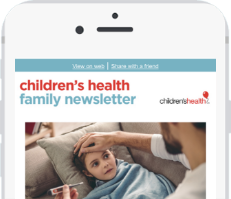What do the new fruit juice guidelines state?
The new guidelines from AAP were released on Monday, May 22, 2017. This is the academy's first update on fruit juice recommendations since 2001. The policy statement recommendations suggest:
"Intake of juice should be limited to, at most, 4 ounces daily for toddlers age 1-3. For children age 4-6, fruit juice should be restricted to 6 ounces daily; and for children ages 7-18, juice intake should be limited to 8 ounces or 1 cup of the recommended 1 ½ to 2 cups of fruit servings per day."
"Toddlers should not be given juice from bottles or easily transportable 'sippy cups' that allow them to consume juice easily throughout the day. The excessive exposure of the teeth to sugar can lead to tooth decay, as well. Toddlers should not be given juice at bedtime."
What are the reasons juice is not a healthy choice before a child turns one?
Juice is not a necessary part of a healthy diet. Infants can meet their fluid and calorie needs with breastmilk or infant formula until age-appropriate solid foods are introduced.
What are possible negative effects of giving juice to your children before the age of one?
Juice is high in sugar, low in fiber, and high in calories. Drinking sugary beverages also promotes tooth decay and cavities.
What ingredients should parents be looking out for in juice?
100% juice with No Added Sugar. If your child is used to drinking large quantities of fruit juice, a good way to help cut down the amount of sugar is by adding half water and half juice.
What are some common mistakes parents make when giving drinks to their kids?
Many parents believe juice is a healthy beverage that has the same nutritional benefits as whole fruits and vegetables. However, it takes 3-4 oranges to make one cup of juice so that one cup of juice contains 6-7 teaspoons of sugar with little to no fiber. As a registered dietitian, I would like to encourage parents to offer their children whole fruits and vegetables which have both the vitamins and fiber that children need without added sugar.
In addition, parents should refrain from giving children fruit juice in bottles or sippy cups they can drink throughout the day. Children who drink from a sippy cup have juice and sugar washing over their teeth for longer periods of time. If juice is offered it should be in a regular cup to be consumed at one time. This could help prevent dental decay and cavities.
What are some good substitutes for juice, either for infants or young children?
Human milk and/or infant formula is sufficient to satisfy fluid requirements for infants. After age 1, water and milk are appropriate beverage choices. Two to three servings of milk per day provide protein, calcium and vitamin D. After 2 years of age, offer your child lower fat, 1% or skim milk. Encourage children to drink water throughout the day for adequate hydration.

Thank you!
You are now subscribed to the Children's Health Family Newsletter.
Children's Health will not sell, share or rent your information to third parties. Please read our privacy policy.
